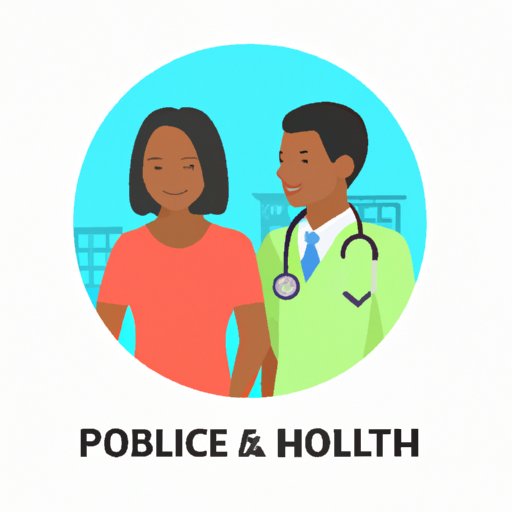
Introduction
Public health nursing is an essential component of the healthcare system that strives to promote and protect the health of populations rather than just individuals. Public health nurses have a vital role in improving the health of communities by designing, implementing, and evaluating preventive health services, disease management programs, and health education initiatives. In this article, we will discuss the role of public health nurses, their responsibilities, and the importance of investing in public health infrastructure for better health outcomes.
Defining the Role
Public health nurses are registered nurses who have specialized knowledge and skills in community health and preventative healthcare. They work in several settings, including government agencies, non-profit organizations, schools, and occupational health clinics. Their main role is to provide health education, disease prevention services, and promote healthy behaviors among at-risk populations.
Public health nurses are responsible for conducting health assessments, developing health promotion strategies, and ensuring that health services are accessible and equitable for all members of the community. They also work to identify specific populations at risk for various diseases and illnesses and develop plans to mitigate risks and promote healthy behaviors.
Public health nurses face unique challenges in their role. They must be effective communicators, skilled in engaging with diverse individuals and groups. They must also have knowledge of infectious disease control, epidemiology, and biostatistics to identify populations at risk for specific diseases and to develop and implement appropriate interventions.
Public Health and Community Outreach
Public health nurses work to improve the health and wellbeing of communities by collaborating with other healthcare professionals, local government officials, and community organizations. Their outreach efforts include health education initiatives, disease prevention programs, and public health research.
Public health nurses play a crucial role in engaging with local organizations to promote health promotion and disease prevention. They work with community members, schools, and businesses to develop strategies that promote healthy environments, reduce risky behaviors, and prevent the spread of infectious diseases.
Public health nurses also work with local government officials to promote public health policies, secure funding for public health initiatives, and promote health equity. Their involvement in shaping public policies helps ensure that the needs of all members of the community are met.
Collaborative and Multifaceted
Public health nursing is a collaborative effort that requires a diverse set of competencies, including leadership, communication, and critical thinking skills. Effective public health nursing requires interdisciplinary collaboration and coordination among healthcare professionals to achieve public health goals.
Public health nurses work closely with other healthcare professionals, including physicians, epidemiologists, social workers, and community health workers. They collaborate on public health assessments, disease prevention programs, and outbreak investigations.
Public health nurses seek to address health disparities that exist across populations by coordinating efforts with other healthcare professionals, community organizations, and local government officials. By working collaboratively, they can develop and implement effective and sustainable community interventions.
Career Paths and Education
To become a public health nurse, individuals must possess a current nursing license and complete advanced education in public health. The educational requirements typically include a bachelor’s degree in nursing and a master’s degree in public health.
Public health nursing offers various career paths and specializations, including community health, home health, occupational health, and school health. Public health nurses may also specialize in areas such as disaster response, maternal health, or communicable disease control.
Aspiring public health nurses must possess excellent communication skills, leadership abilities, and a passion for improving community health outcomes. Opportunities for public health nurses exist in a variety of settings, such as government agencies, community health clinics, hospitals, schools, and non-profit organizations.
The Importance of Investment
Public health nursing is critical to the healthcare system and the overall health of the community. Investing in public health infrastructure not only promotes healthy behaviors and prevents disease but can also reduce healthcare costs. Public health nurses work to identify and address health disparities among populations, preventing the onset of chronic health conditions and the spread of infectious diseases.
There is a need for greater investment in public health infrastructure to develop and sustain public health initiatives. Investment in public health nursing can provide the healthcare system with the skilled professionals necessary to improve community health outcomes. The return on investment in public health nursing can be significant, reducing healthcare costs, and improving overall public health.
Conclusion
Public health nursing is essential to improving community health outcomes and addressing health disparities. Public health nurses work collaboratively with other healthcare professionals, community organizations, and government officials to develop and implement effective public health strategies.
Investing in public health infrastructure, including public health nurses, is critical to achieving better health outcomes and reducing healthcare costs. As individuals, we can support public health nursing by advocating for increased funding for public health programs and supporting policies that promote health equity and access to healthcare for all.





